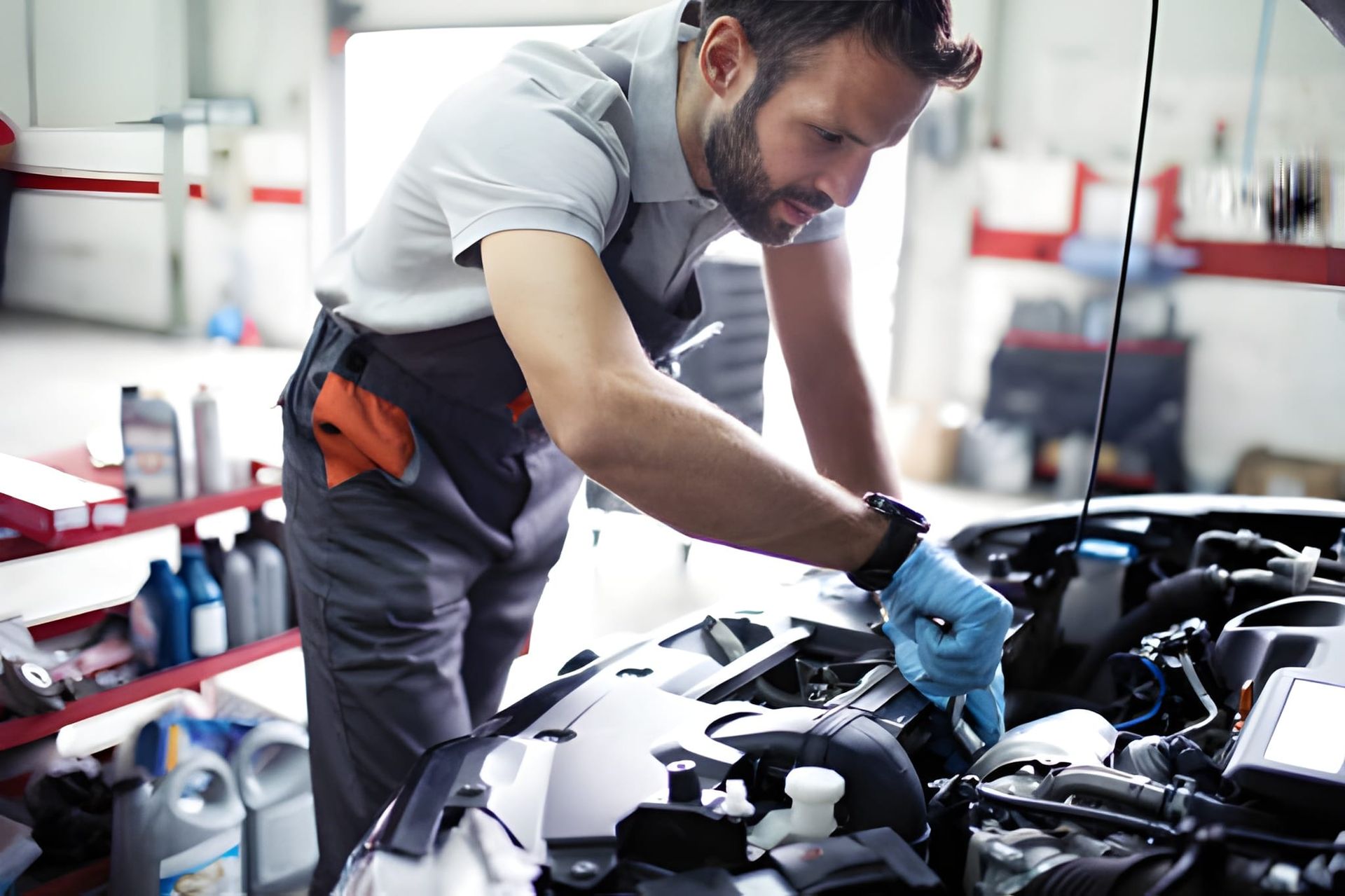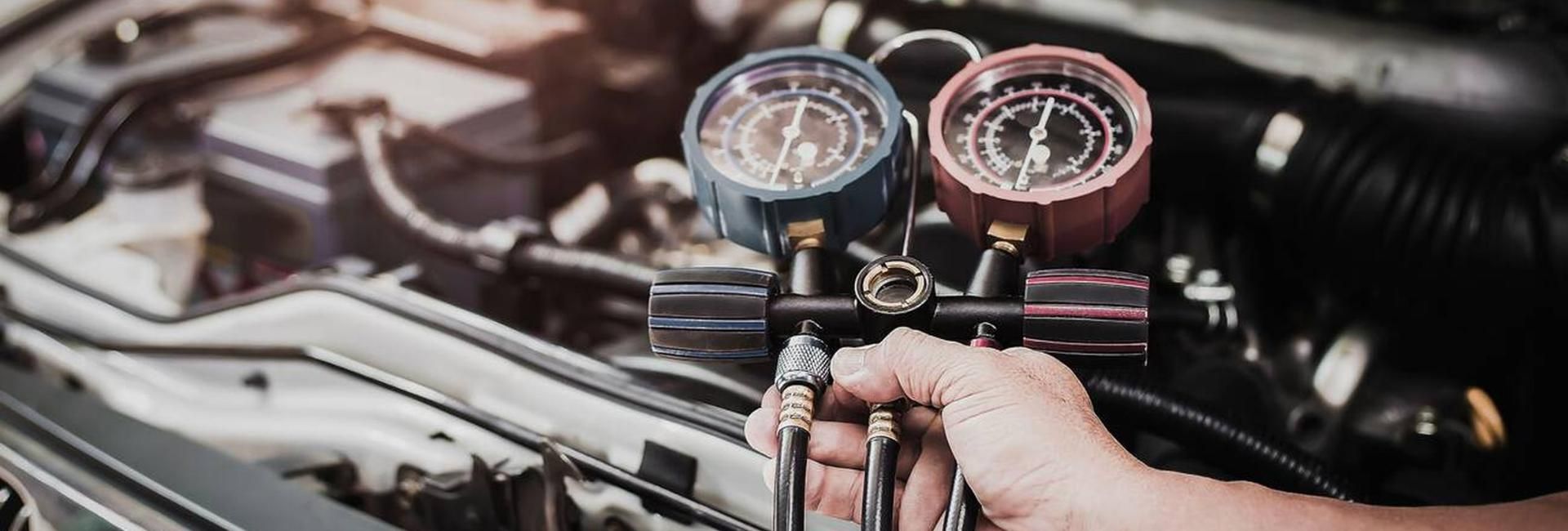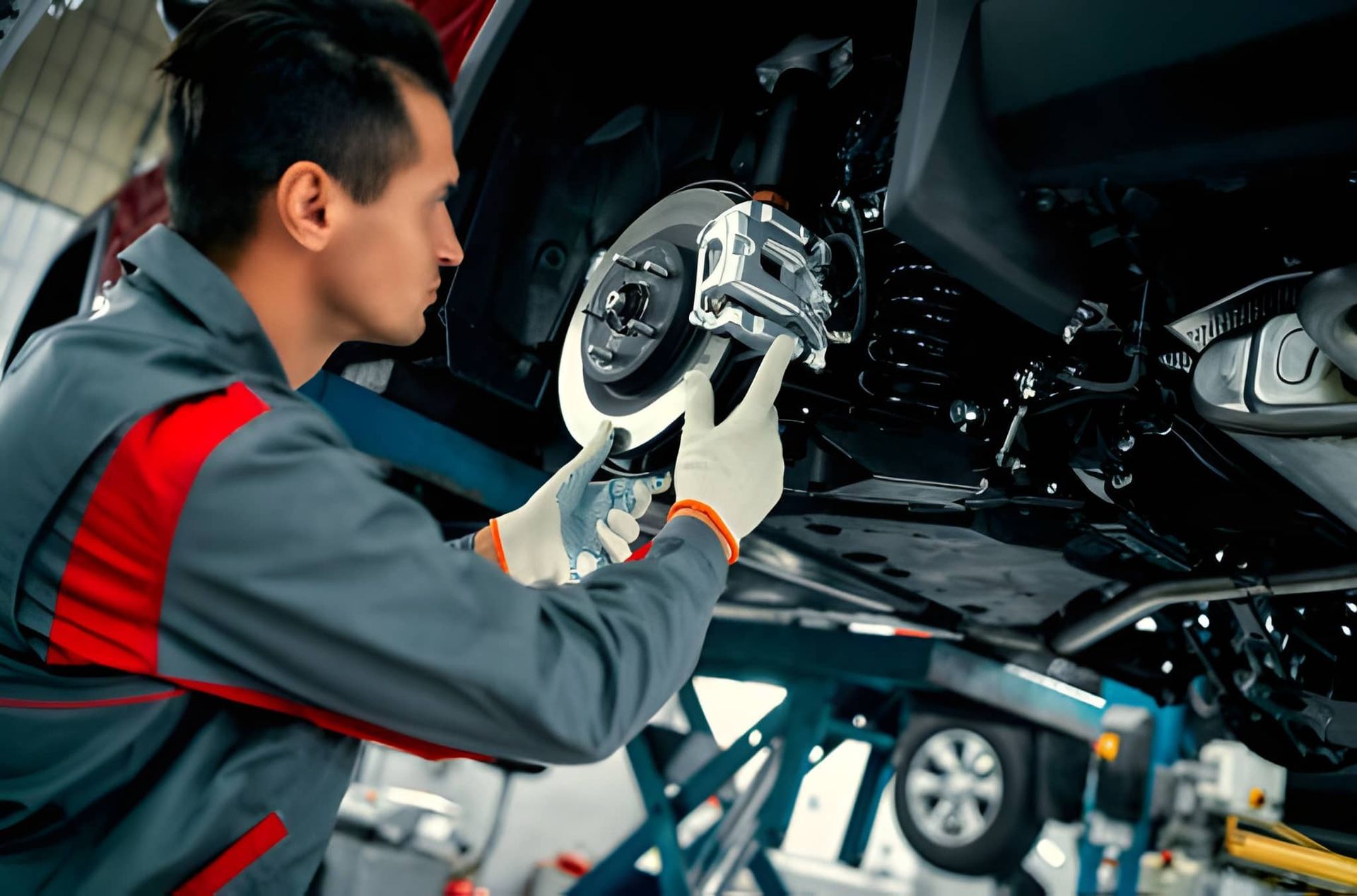Our Blog
Expert auto diagnostics services in Aliso Viejo by Super Service of Aliso Viejo. Ensure optimal vehicle performance. Schedule an online appointment now!

Introduction When most drivers think about electrical problems, the first thing that comes to mind is usually the battery. But in reality, your alternator is the unsung hero that keeps your vehicle’s electrical system running. It powers everything from your headlights to your radio, and keeps the battery charged as you drive. If it starts to fail, you’ll feel it—dim lights, strange smells, or even a vehicle that won’t start at all. At Super Service of Aliso Viejo, we’ve helped hundreds of drivers get ahead of alternator issues before they become breakdowns. This guide breaks down what your alternator does, how to spot early warning signs, and how to keep it running efficiently through winter and beyond. What does the alternator actually do? Your alternator is connected to your engine by a belt, and it converts mechanical energy into electricity. That electricity powers your vehicle’s electrical systems while the engine is running—including your headlights, power windows, infotainment systems, and even your heater. It also keeps the battery charged, so it’s ready to go the next time you start the car. When the alternator is working properly, you don’t notice it. But once it starts slipping, everything electrical in your vehicle is at risk. Signs your alternator might be in trouble 1:- Dim or flickering headlights If your lights are dimmer than usual or seem to flicker while driving, that’s a classic sign of a weak alternator. 2:- Electrical accessories are acting strange Power windows moving slowly, a glitchy radio, or warning lights on your dashboard are all red flags. 3:- Battery warning light That little battery icon on your dash isn’t just about your battery. It often signals a charging system issue, usually involving the alternator. 4:- Odd smells or noises A worn alternator belt can produce a burning rubber smell or a high-pitched squeal as it slips. That’s your cue to get it checked. 5:- Car won’t start or stalls while driving If your alternator stops working, your car may die while driving or fail to start, because the battery can’t charge. Why winter matters Cold weather puts extra strain on your electrical system. Using your heater, defrosters, headlights, and seat warmers more often draws more power from the alternator. If it’s already struggling, winter may push it over the edge. That’s why December is a smart time to have it inspected—especially if you’re planning any holiday travel. How to keep your alternator running efficiently 1:- Don’t ignore warning signs That battery light isn’t just for the battery. If anything feels “off” electrically, it’s worth having a full charging system check. 2:- Get regular inspections At Super Service of Aliso Viejo, we inspect your alternator output, belt condition, and voltage levels during routine service visits. If there’s an issue, we’ll catch it early. 3:- Don’t overload your system Avoid using all electrical accessories at once (especially in older vehicles). And don’t leave devices plugged in when the engine is off—it drains the battery and forces the alternator to work harder the next time you start up. 4:- Replace belts before they fail Alternators don’t usually fail on their own—belt wear or tension issues are often the root cause. A cracked or loose belt leads to poor alternator performance. 5:- Use quality parts If your alternator needs replacement, choose a high-quality part installed by a certified technician. Cheap aftermarket options can fail quickly or deliver inconsistent voltage. Why Super Service of Aliso Viejo? We’re not just another shop—we’re a team of ASE-certified professionals who prioritize transparency, quality, and customer care. Here’s how we make service easy: Digital Vehicle Inspections with photo and video updates 3-year/36,000-mile nationwide warranty on parts and labor Clear, upfront communication —no surprise costs Comfortable waiting area, local shuttle, and loaner cars available When we inspect your charging system, we don’t just swap parts. We explain what’s happening and show you what we’re seeing, so you can make informed decisions. Conclusion Your alternator is one of those parts you don’t think about—until it fails. And when it does, it takes your whole electrical system down with it. Getting it checked before the holiday season, especially during colder months, is one of the smartest preventative steps you can take. If you’ve noticed dim lights, weird smells, or your battery light is on, don’t wait until it’s too late. Let us help you keep your car running smoothly and reliably. Book your charging system check today: 👉 Schedule your appointment here We’ll make sure your alternator and everything else is in top shape for the winter season and beyond.

Introduction As we head into autumn in Aliso Viejo, the weather cools just enough to make all the outdoor activities feel perfect: hiking, weekend drives, maybe even camping. But cooler mornings and changing seasons also mean more strain on your car. If you’re planning to explore the trails, head out on road trips, or just get out of the house more, it’s a great time to make sure your vehicle is up to the task. At Super Service of Aliso Viejo, we believe being proactive about car maintenance helps you avoid breakdowns, unsafe situations, and last-minute surprises. In this post, we’ll walk through the key things you should inspect now to ensure your car is reliable, safe, and ready for fall adventures, plus comfort tips so every drive is more enjoyable. When you prepare your car ahead of the season, you reduce the risk of getting stranded in the cold or having something fail on you when you least expect it. Fall brings changes in temperature, more moisture in the air, and often more debris on roads. All of these can reveal issues in your vehicle that have been hanging on through the summer. What to Check Start with the basics. Your brakes, tires, fluids, and battery can take extra stress when mornings are cold and you’re running your car more often for short trips. Brakes need good stopping power, especially if roads are slick; tires need good tread; fluids should be topped off to avoid freezing or overheating issues; and the battery should be strong enough to handle cold starts. Don’t forget about visibility and safety gear. Wipers often get worn or brittle, so replacing them ensures rain or fog doesn’t leave you stranded. Make sure your lights (headlights, taillights, brake lights) are working well so you’re seen in low-light situations. Also, check mirrors and windows are clean, and defrosting/defogging systems are working properly. Comfort & Convenience It’s not just about safety. You’ll enjoy your drives more if your car interior is comfortable. Keep cabin air filters clean, ensure the heating and ventilation systems work well (so you’re not driving cold or dealing with stale air). Check your interior lighting, make sure your seat belts are functioning properly, seats adjusted comfortably, and that you’ve got essentials like water, a small blanket or jacket, maybe even some snacks in the trunk. How Super Service Can Help We offer full multi-point inspections customized for seasonal transitions. Our expert technicians will: Check the brakes, tires, fluid levels, battery, and belts/hoses. Inspect wipers, lights, and defrost/defog systems. Test heating and ventilation to make sure you’re comfortable. Provide any needed maintenance or repair with transparent estimates so there are no surprises. We want you to go into fall with confidence — whether that’s for your daily commute, weekend getaways, or family drives. Conclusion Fall in Aliso Viejo is beautiful — the crisp air, the colors, the chance to get outside more after a hot summer. Your car should be part of the enjoyment, not the frustration. Taking care of maintenance now saves you headaches later. If you're overdue for a check or want an expert eye before your next trip, now's the perfect time. Don’t wait until something small turns into a big problem. Ready to get your vehicle inspected and fall-ready? Book your appointment with Super Service of Aliso Viejo here: https://www.superserviceofalisoviejo.com/
Discover top-notch brake service at Super Service of Aliso Viejo, CA. Our expert team ensures safety and reliability. Visit us today!
Discover why your check engine light is on in Aliso Viejo, CA with Super Service of Aliso Viejo's experts. Get top-tier auto repair advice today. Visit us today!

Last August, Orange County experienced an intense heatwave. While the beaches buzzed and ice cream trucks rolled through neighborhoods, our bays at Super Service of Aliso Viejo saw a spike in visits from drivers who suddenly realized their car A/C had failed them. Sarah, one of our long-time service advisors, remembers Mark vividly. He arrived flushed and frazzled, saying, "I cranked up the fan, but it just blew hotter air back at me. I had no idea I was low on refrigerant." He wasn't alone. Many drivers assume that if their A/C worked in May, it'll coast through August. But that assumption often leads to sweaty drives and expensive surprises. Why Summer Is So Hard on A/C Systems Summer doesn’t just mean longer days it means greater strain on your vehicle. A/C components like the compressor, evaporator, condenser, and refrigerant lines work overtime in the heat. If there's a tiny refrigerant leak, or if the condenser is blocked with debris, cooling efficiency plummets fast. It doesn't help that many of us use our cars more often in summer: road trips, beach visits, weekend getaways. That extra mileage can accelerate wear, causing issues to surface at the worst possible times. A Real-World Rescue: Alicia’s Beach Trip Breakdown Alicia planned a beach day with her family in Laguna. But as they drove, the car cabin felt increasingly muggy. Her daughter asked, "Why is it so hot in here?" Alicia's A/C was only blowing warm air by the time she pulled into our shop. Our certified technicians ran a 60-point inspection. The results? A slow refrigerant leak, clogged condenser fins, and a dirty cabin air filter. We fixed it all that day. Alicia and her family made it to the beach just a few hours later in cool, breezy comfort. Summer A/C Health Checklist Before the next heatwave strikes, here are key steps to ensure your A/C is ready: Book a 60-point inspection every spring or early summer. Check refrigerant levels and compressor operation. Clean or replace the cabin air filter for optimal airflow. Inspect condenser fins for debris or bug buildup. Watch for odd signs like weak airflow, odd smells, or clicking sounds. Monitor fan speed and listen for unusual sounds when the system is running. Check the temperature inside your car with a thermometer it should cool rapidly. Why Super Service of Aliso Viejo? Master ASE-certified techs trained in diagnosing and repairing A/C systems quickly. Digital inspections that include pictures, videos, and text updates. Transparent service – we explain every issue and show you why it matters. 3-year/36,000-mile warranty so you're covered wherever the road takes you. Free alignment check with every service visit. Comfort-first approach with a cozy waiting area, shuttle service, and loaner cars available. Locally trusted reputation built on honesty, expertise, and reliability. Stories from Our Guests One guest raved, "It felt like I stepped into a cloud after the service. I didn't realize just how bad the air had gotten until it was fixed." Another added, "They caught an issue I didn't even know I had. I feel safer knowing my kids won’t be riding in a hot car this summer." Another customer, Lisa, shared that she noticed an odd noise from her dashboard, but dismissed it. "I thought maybe it was just something loose," she said. Turns out, the blower motor was wearing out and could have failed completely. We replaced it before her weekend trip to Palm Springs. Don’t Let Summer Catch You Off Guard August heat isn't forgiving and neither is a failed A/C. If your car hasn’t had a professional inspection yet this year, don’t wait until it blows hot air when you need it most. Protect your comfort, health, and peace of mind with preventive care. Whether you're commuting daily, shuttling kids to summer camps, or heading out on a road trip, a working A/C isn't just a luxury it's a necessity in Southern California. Visit www.superserviceofalisoviejo.com today and schedule your pre-summer A/C check. Let Super Service keep you cool and comfortable all season long.
Expert wheel alignment at Super Service of Aliso Viejo, CA. Improve vehicle safety & performance today. Schedule an online appointment now!









